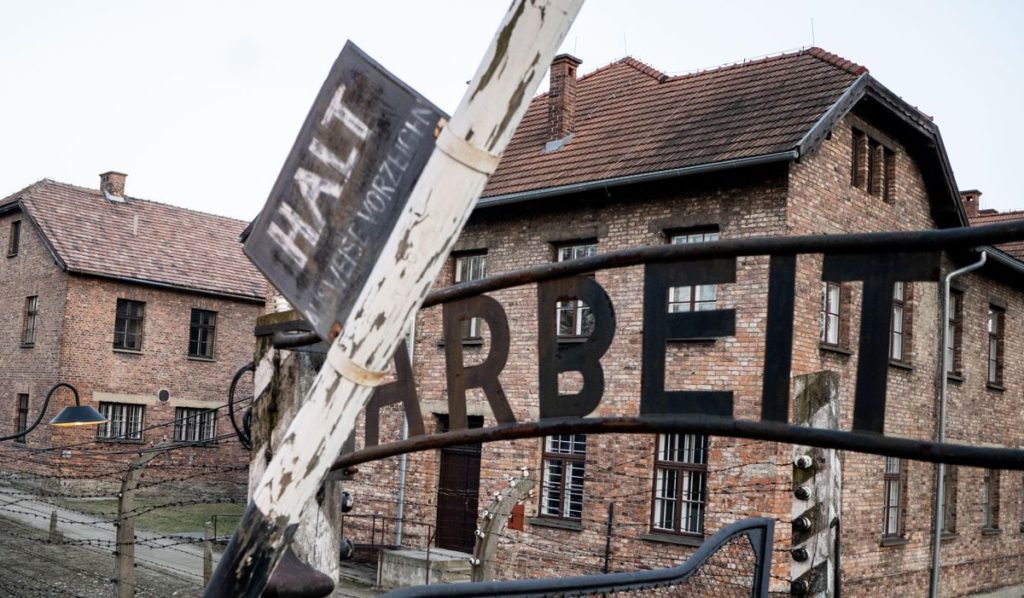IN THE MEDIA
History’s lessons vital to counter extremism
January 18, 2021 | Sharyn Mittelman

Herald Sun – 18 January 2021
THE recent shocking events at the US Capitol have underlined how extremists around the world are promoting racist conspiracy theories, recruiting online and trying to provoke “race wars” — and helped cause the violence we saw in Washington.
Meanwhile, Australian security agencies continue to warn about the growth of far-right extremism here.
In September, the Australian Security Intelligence Organisation reported far-right extremism had increased and now constituted about 40 per cent of its caseload. In October, the Australian Federal Police said it was seeing a rise in young people being “aggressively” radicalised online.
The federal government subsequently agreed to the ALP’s initiative to establish a parliamentary inquiry into extremist movements in Australia, which will place the spotlight on this pressing issue.
Given young people are particularly vulnerable to being recruited by far-right groups, this places a special onus on schools and parents to educate about the dangers of racial and religious hatred.
One approach to the dangers of far-right extremism is to teach young people about the consequences of racism seen in the crimes of Nazism, including the Holocaust. Sadly, 75 years after the Holocaust ended, its memory is fading, especially among younger generations. In September 2020, a survey commissioned by the Conference on Jewish Material Claims Against Germany found two-thirds of young Americans did not know six million Jews were murdered in the Holocaust, and one in 10 adults under the age of 40 did not know or accept the truth the genocide happened.
Further, half of millennial and Gen Z respondents had seen Holocaust denial or distortion posts on social media or online, while 56 per cent reported having seen Nazi symbols on social media or in their communities in the past five years.
Despite the Holocaust being the most well-documented crime in history, Holocaust denial has long proliferated. Deniers have long dwelt on the fringes, but today their misinformation is amplified on the internet and social media where they can find space to be uncontested and reach global audiences.
Amid resurgent antisemitism, in October Facebook reversed its previous position and said it would ban posts that denied or distorted the Holocaust. Twitter soon followed, while YouTube banned Holocaust denial in 2019. While these are welcome developments, the companies were far too slow to act and serious damage has been done.
The misinformation on social media places an important responsibility on schools to teach students how to find accurate information on the internet including about the Holocaust, especially in an era of “alternate facts”. This becomes even more important as survivors pass away.
After disturbing reports of antisemitic incidents at public schools in Victoria in 2019, in February 2020 the Victorian government announced various programs to counter antisemitism and also said education on the Holocaust would be mandatory for years 9 and 10.
While Holocaust education on its own is not sufficient to stop antisemitism and racism, it can help counter religious, racial and political sources of hatred, and is a high priority to learn about.
It can also teach lessons that promote an appreciation for democracy and human rights, as students learn how easily Germany descended from democracy into dictatorship. This awareness can help prevent young people from being attracted to extremism or becoming bystanders to it.
Currently, Victoria and NSW are the only states in Australia to make education on the Holocaust compulsory, despite it being included in the Australian curriculum all states and territories are expected to use as a guide.
Last month Education Minister James Merlino announced new best practice teaching and learning resources to help teachers educate about the Holocaust, developed in consultation with Jewish community organisations including the Jewish Holocaust Centre and Gandel Philanthropy. If implemented successfully, these resources could also be used as a model for other jurisdictions.
Other local initiatives which play an important role in teaching future generations include the Gandel Holocaust Studies Program for Australian Educators, which has trained around 350 teachers, as well as the redevelopment of the Jewish Holocaust Centre, which has 1300 video testimonies from survivors.
As the memory of the Holocaust fades, the importance of quality education on the Holocaust becomes critical not only to remember the tragedy that occurred, but also to understand its universal lessons.
As a grandchild of Holocaust survivors, it was heartening to me the Victorian government took this step, as many survivors strived to survive just to tell their own story, and so many others who were killed.
For Victorians, this is also local history — as Melbourne became home to one of the highest concentrations of Holocaust survivors outside of Israel.
Meanwhile, for society as a whole, this initiative may help people become alert to the dangers of extremism, prejudice and racism, and foster better social cohesion.
SHARYN MITTELMAN IS A SENIOR POLICY ANALYST AT THE AUSTRALIA/ISRAEL & JEWISH AFFAIRS COUNCIL
Tags: Antisemitism, Australia, Far Right, United States





